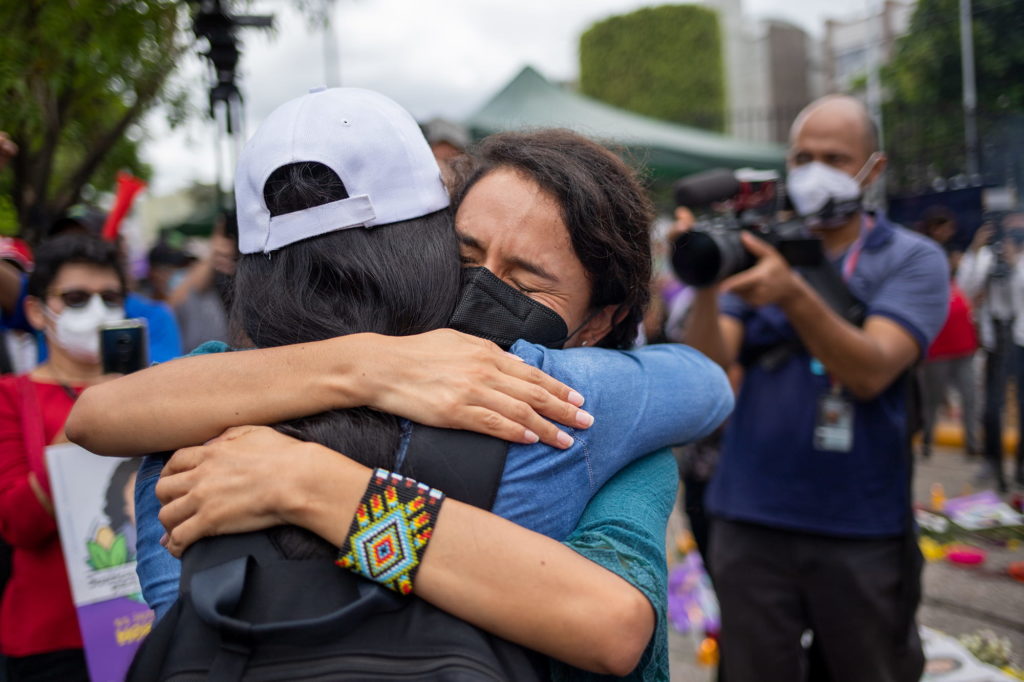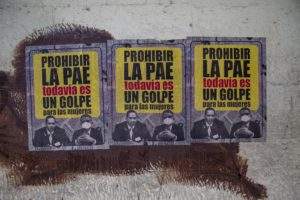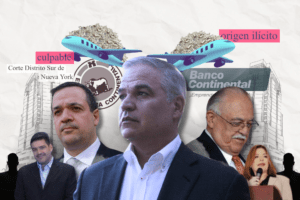Interview. Attorney Alex Navas, Cristosal’s national legal coordinator in Honduras and a former Maccih official, told Contracorriente that the prosecutorial injunction recently issued against a person implicated in the murder of Berta Cáceres reminds him of Maccih’s investigations into the Atalas family – a family with a lot of economic power in the country– and how the Honduran business elite reacted by exerting their influence on the justice system. The Public Prosecutor’s Office, currently headed by two interim prosecutors, faces the challenge of gaining legitimacy after its controversial election while the Supreme Court simultaneously grapples with delivering justice in emblematic cases, such as that of Berta Cáceres.
Texto: Leonardo Aguilar
Fotografia: Jorge Cabrera y Fernando Destephen
Translation: Amy Patricia Morales
In mid-July 2017, the Support Mission Against Corruption and Impunity (Maccih), through its supervisor, attorney Juan Jiménez Mayor, questioned the rapid growth of the capital of the company Desarrollos Energéticos S. A. (Desa), as it went from 25 thousand lempiras in May 2009 to 381 million lempiras in February 2014. That was the first time that some members of the Atala family were suspected officially, because according to attorney Jiménez Mayor, it was important to analyze the legitimacy of the significant increase in Desa’s capital to see if it was not related to money laundering. Jiménez Mayor went further that day and mentioned who was at the head of Desa: “Roberto David Castillo Mejía, as president, Jacobo Nicolás Atala Zablah, as vice-president and Pedro Atala, as member,” he said.
Yesterday, in a shocking surprise, the Public Prosecutor’s Office announced a new prosecutorial request against a second person connected to the murder of Berta Cáceres’, six years after the previously reported aforementioned events. The Civic Council of Popular and Indigenous Organizations of Honduras (Copinh), whose coordinator was Berta Cáceres and is now led by her daughter Berta Zúniga Cáceres, revealed that Daniel Atala – who served at the time as financial manager of Desa – was charged by the Public Prosecutor’s Office for his participation in the murder of Berta Cáceres, which occurred on March 3, 2016 in La Esperanza, Intibucá.
Se ha presentado un requerimiento contra de Daniel Atala por su participación en el crimen contra #BertaCáceres. El #COPINH y las hijas/o de Berta esperamos q esto no sea solamente una exhibición mediática y que el @MP_Honduras cumpla responsablemente en probar su participación. pic.twitter.com/jya9n5kND0
— COPINH (@COPINHHONDURAS) December 2, 2023
The Public Prosecutor’s Office said in a statement released last night that the request was made with an arrest warrant against the “new person involved” by the Prosecutor’s Office for Crimes Against Life.
However, Daniel Atala was called as a witness in June 2021 during the trial against David Castillo, who was found guilty and sentenced to 22 years and 6 months in prison for being an intellectual co-author of Cáceres’ murder. But Atala refused to testify at the time, arguing that he was also under investigation for Berta’s murder.
In a communiqué dated May 11, 2020, Copinh demanded that Daniel Atala be prosecuted and punished for the murder of Berta Cáceres, with the following request: “Daniel Atala served as financial manager of the DESA company and directed together with David Castillo the illegal actions with the objective of building the Agua Zarca dam, which resulted in the murder of 6 people including Berta Cáceres. He is the son of José Eduardo Atala Zablah, and nephew of Pedro Atala Zablah and Jacobo Atala Zablah, members of the board of directors of said company, who were the most responsible for the decisions taken”.
In light of this request, Contracorriente (CC) spoke with attorney Alex Navas (AN), who recalled the lines of investigation opened by the Maccih against Desa, the influence of the Atala family, the role of the interim prosecutors and the current polarization that Honduras is challenged with.
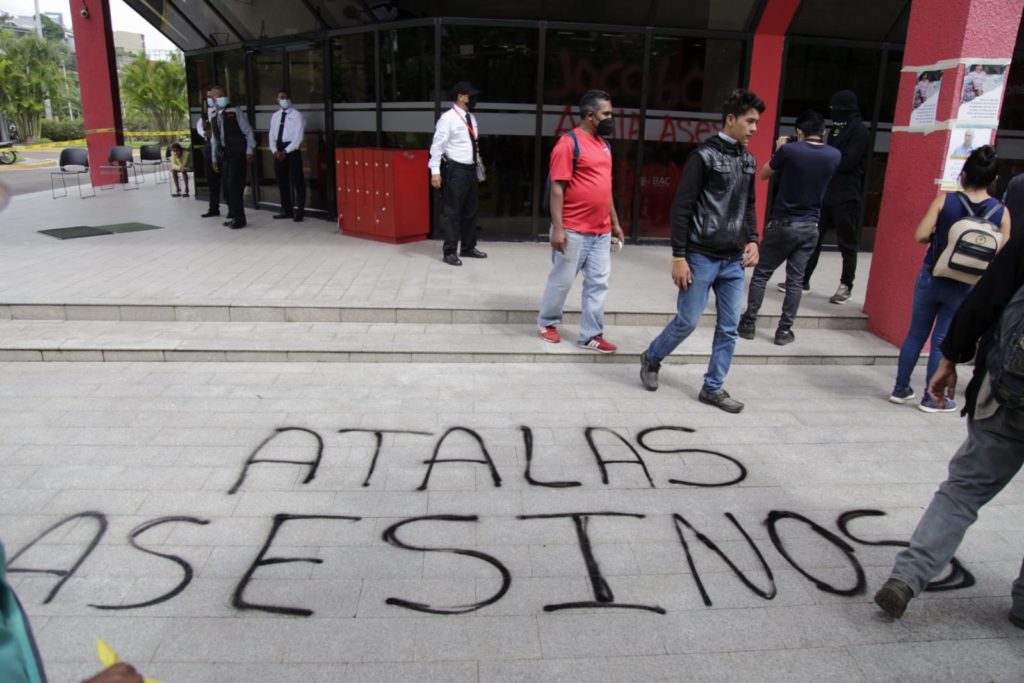
CC: Recently the Public Prosecutor’s Office published a communiqué on the prosecutorial request for the murder of Berta Cáceres which, according to Copinh, is against one of the members of the Atala family. What is your opinion on this matter?
AN: I was an official at Maccih for four years, where the famous case of “Fraud in the Gualcarque” took place, which was not specifically about the murder of the environmental leader Berta Cáceres but about the issue of corruption in the licenses of the Gualcarque River. At that time, Juan Jiménez, in a press conference, read a communiqué in which there were people who are now in prison and others who were from a very important family, including the Atala family, who were the principals of the DESA company. I think it is important that after that press conference, and now that more than five years have passed, justice continues to be done. And that those lines of investigation that had to do with the intellectual authors of the murder of Berta Cáceres, as well as the issue of linking corruption mechanisms and environmental licenses, are effectively promoted by the Public Prosecutor’s Office, [as well as] those prosecutorial requirements and that the intellectual authors of this whole plot that led to the murder of Berta Cáceres are finally brought to justice.
CC: What do you know about Daniel Atala, who is pointed out by Copinh as the new defendant?
AN: The only thing I know is that he was a partner in the DESA company and that he worked very closely with Mr. David Castillo and with some people who are already linked to the murder of Berta Cáceres. So I imagine that he is one of the main suspects in this case of the intellectual authors of all these crimes that he is accused of.
Although the Public Prosecutor’s Office does not mention him directly, Copinh says that he is Daniel Atala [the intellectual author of the murder] and it is important that he is captured and that the investigations of the case are carried out, that he is given all the relevant judicial guarantees and that justice is done as soon as possible.
CC: Berta’s family, together with their legal representatives, joined to support the Public Prosecutor’s Office in the accusations. What does it mean that this case has been presented so far with the departure of Óscar Chinchilla and Daniel Sibrián and now with the entry of the new interim prosecutors Johel Zelaya and Mr. Morazán?
AN: Look, what I can tell you is that the same day that the Maccih press conference was held where we singled out this family linked to corruption, that same day, in the afternoon, we had the visit of the entire power level, the ANDI (National Association of Industrialists), making observations about why this family had been mentioned in this case, I was surprised because the entire top management of the Cohep was there, And this means, esteemed journalist, that here we talk a lot about political influences and justice operators, but there is also the influence of corporate business entities that have enough influence or maneuvering capacity to pressure general prosecutors and deputy prosecutors so that certain linked characters, who have an infinite number of crimes, are not investigated and are not prosecuted.
In these cases, for example, of high impact, normally those who fall are the intermediate sides, such as David Castillo, for example. He was a manager of a company where he really did not have all the decision-making capabilities. And the decision makers in this case were others, important families at the economic level of this country that in the end are or were, in some way, untouchable. I commend what the current Attorney General [Johel Zelaya] is doing in these cases.
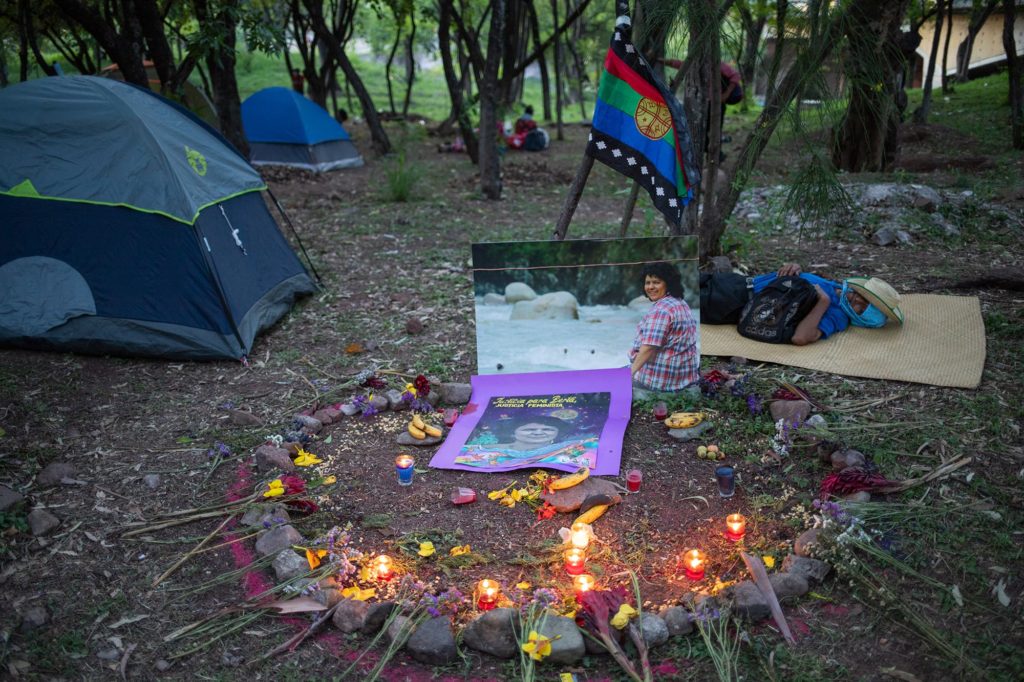
We need to articulate a little more the issue of captures and the issue of intelligence, because the prosecutorial requirements have no effect if these people are not presented before the jurisdictional entities; therefore, I believe that this type of issues must be fine-tuned.
We cannot ignore that the outgoing prosecutor Chinchilla and attorney Sibrián, in some way, and I am not looking at this with political bias, withheld certain cases to protect certain political actors and certain characters of the business world that still have or had control over State institutions that are involved with justice.
CC: What is the bank’s responsibility? Both national and international banks have supported and backed these projects that have ended not only with the murder of Berta Cáceres, but there are also other people who have been murdered or whose rights have been violated as a result of the support of these financial organizations.
AN: In this country, with serious economic problems, I see that only three areas are growing – and this is what the data from ECLAC and the World Bank say -: energy infrastructure, telecommunications and banking. Why? Because the banks are like an octopus that have created different aspects of investment and have co-opted most of these spaces, and they have a high responsibility, because the money invested in a project damages ancestral lands, goods or resources that belong to the indigenous peoples and to the majority of the peoples, and can also damage the subsistence of these communities and also violate human rights. Here we have to see not only the involvement of the national bank, owned by the Atala family, but also the Dutch Bank, for example, which gave a lot of financing to these companies.
The entities in charge of this, such as the Public Prosecutor’s Office, should carry out an investigation to see if they did not have due diligence on these projects that violated human rights, constitutional guarantees and were linked to corruption issues at the time of granting the required licenses and permits, I think there should be an investigation of the case and draw the relevant deductions of responsibility.
Somehow, human rights were granted in a first line to protect the rights of people, but these rights were reoriented or positioned to defend the voracity of capital. And there has been an open corruption issue and this “let it be done and let it pass” is taking its toll that translates into the violation of human rights and essential guarantees so that people can subsist and develop. They have gone to the extreme of murdering people who oppose these megaprojects that only leave mourning, hunger, poverty and desolation.
CC: There is already talk that this case will be a litmus test for the Supreme Court of Justice, given that previously in the country there have been no prosecutorial injunctions against families that, in addition to political power, hold economic power. What is your opinion on the situation that the justice system is going through, now with the new Supreme Court we have in the country?
AN: When Maccih arrived, the country had never touched big political and business interests; the Pandora case, for example, narco-politics or the network of deputies, changed the paradigm of criminal prosecution. The beam was quite high with those cases of Maccih and Uferco, demonstrating courage, independence and capacity in the presentation of fiscal requirements and now it will be one more litmus test, here we are not talking about Juan Perez or Maria Rodriguez, but one of the most influential families in the country, who have not only banks, infrastructure and telecommunications but even the National Soccer Team, so it will be a great test for the Supreme Court of Justice to validate what the constitution says that we are all equal before the law and that if someone commits a crime they must be investigated and prosecuted, and if found guilty, punished to the full extent of the law.
Just as they expose a person who steals a chicken or commits a misdemeanor and give them the full weight of the law, so should these families that are linked to corruption and high impact, supposedly, or to crimes that have to do with the planning of a murder like that of Berta Cáceres, should be investigated and prosecuted with all the guarantees of the law.
It is important to know that there is courage on the part of the prosecutors, because dealing with these families is not easy, they have economic capacity and have political, military and police actors working under their command, and this should be treated with the greatest possible caution but knowing that there is a citizenry and a society that is waiting for justice to be done in this case, and hopefully this is the beginning of changing the paradigm of criminal prosecution, and that any family, whether from an economic, political, social and religious group that commits a crime, is prosecuted by Honduran institutions.
CC: The retired commissioner María Luisa Borjas read a report in which she mentioned the participation of part of the Atala family in the assassination of Berta Cáceres and she was accused of crimes against honor and later convicted; within the framework of all that power, and now that we have a context of great polarization where some actors resort to arguing political persecution, how do you situate your analysis? Because evidently in Honduras we have an environment marked by extreme polarization and lack of clarity in many aspects and on the other hand there is also the influence and power of these families.
AN: The goddess Temis is blindfolded and for a long time she was blindfolded but to favor political, business or corporate groups in this country, I hope that now with the new change of the new Supreme Court of Justice -because I believe that the appointing board did it fairly well and we also have interim prosecutors, that must be emphasized- they have somehow promoted cases that were shelved, and now, I believe, I hope that the goddess Temis continues keeping the cloth in her eyes but to impart justice with the sword she has in her hand, no matter if it is from one side or the other, but that justice is imparted regardless of any political or economic relationship that the person under investigation may have.
It cannot be called political persecution to those who, when they came to power, used public transportation to reach State institutions and then left as large landowners, with large houses and great privileges. You cannot call political persecution to those who diverted public funds for health and education and drained them for private interests, that is called corruption and this must be fought whether it is of the red, blue or green party, it must be fought frontally and openly. This is the only way to build a democracy that adheres to the rule of law and is based on justice.
Justice, the Greeks used to say, is to give to each one what he deserves; if with those corruption funds schools or roads had been built we would definitely have a better country, but putting it on the other side, that people who commit crimes also have to be punished and investigated with all the processes and guarantees that the constitution provides.

